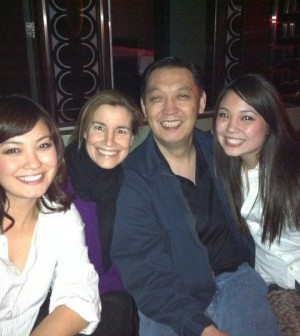
No marriage is perfect and anyone who tells you so is lying. My husband and I met and fell in love near his hometown in Iwate, Japan over 25 years ago. Interracial marriages between Japanese and outsiders have existed for hundreds of years. While a majority of such marriages concern Chinese, Korean, Filipino and Brazilian spouses, westerners married to Japanese have recently increased in number. There is much written on western men and Japanese women uniting in matrimony since the 1600s and yet very little regarding western women and Japanese men. The numbers are admittedly less and harder to quantify. It is known however, that many of these marriages do not last.I made a personal list of western women friends that I know, who have married Japanese men and half of them are divorced now. My glass-half-full-husband commented, “Wow, half are still married, ii koto desu ne.” (That’s a good thing.) Some believe that the failures of the other half are caused by differences in culture and values; however, I have found these to be the ‘glue’ and the real challenges of communication, compromise and forgiveness to be common to all couples. Since our wedding day we have experienced, physical sickness, moving across states, recovery from addiction, loss of a parent, moving across oceans, opening and closing a family business, financial challenges, moving, raising two children in two different cultures, and oh, did I mention moving? I certainly would be lying if I didn’t admit that the topic of splitting has arisen on occasion. In retrospect, I often am in disbelief that we have survived. Here is what I know.Cultural struggles appeared more in the beginning of our marriage. We had opposite training regarding whether to keep a feverish child wrapped warmly until they break a sweat, as his family insisted or cool them down as to avoid causing seizures, as my sisters advised. When visiting my family, I was encouraged to go upstairs to nurse my girls and at his house they questioned why I kept going upstairs. As newlyweds, my husband asked me to prepare his bath (in the US), so I proceeded to fill up the tub. When he stepped into the scolding water he was appalled at my lack of Japanese-wife-style consideration. I, having never known my father to take a bath, had no experience in this kind of training and was equally shocked that someone would enter a bath without checking the temperature. These were small hurdles and the bigger cultural differences like Christmas and Obon traditions actually drew us closer as we learned and shared with each other and our families.
Values such as politeness, service to the man of the house and hard work ethics were also fairly easy to observe. I had been raised to address my parents, ‘yes sir’ and ‘no mam’ and would never consider starting a meal before my father was seated. My father and husband had little verbal communication, yet my Dad watched my husband’s hard-working feet. My husband’s judgment of others is largely based on work ethics. Having two daughters, he was out-ranked by females and has taken on a more western value regarding the role of women. Our melding values and interest in our different cultures often became points of agreement.
Challenges stemmed from a lack of communication, compromise and forgiveness. When communicating we often experienced the plight of “I said this, and he heard that.” Our language barrier forced us to try harder to understand each other. Often harder than our non-mixed couple counterparts. Our first compromise came when my husband honestly told me that attending all the social gatherings made him stressed and he would rather not attend. I had been brought up in a world where married couples did everything together. I have since gotten used to showing up at events without my spouse. It’s a win-win. Forgiveness is tough to describe in a public article, yet any couple eventually experiences one or both partners ‘straying’ at some point. The key is willingness to transform and the capacity to forgive. These tasks are surely not instant. It can take years before a couple can laugh again. That brings me to the one contribution my husband made for this article, when asked what is the key to our marriage. His response was laughter: at ourselves, with each other and with the world around us.











